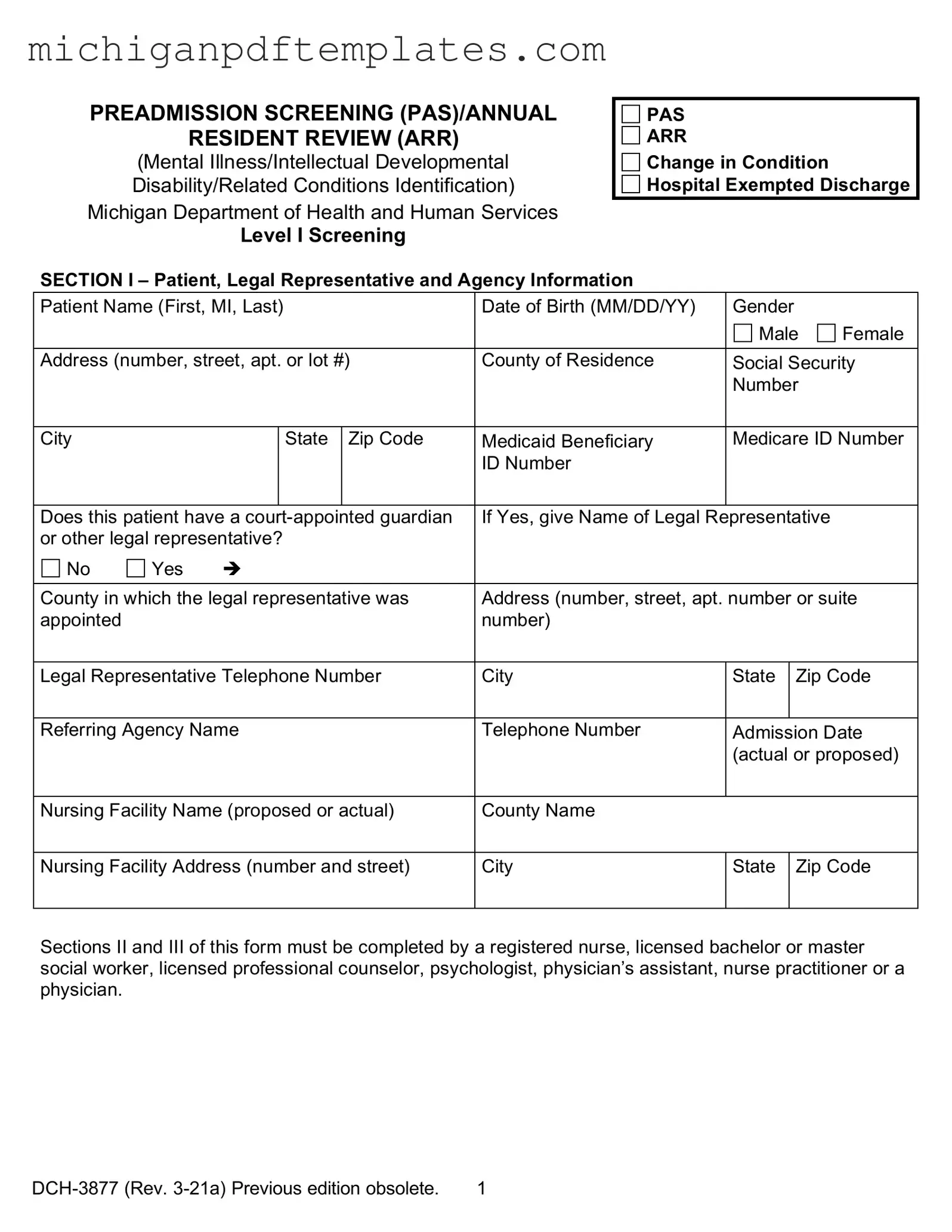Fill in Your Michigan Dch 3877 Form
The Michigan DCH-3877 form is a crucial document used for identifying individuals who may have mental illness or developmental disabilities. This form plays a key role in the preadmission screening process for nursing facilities, ensuring that individuals receive the necessary mental health services. If you need to fill out this form, click the button below for more information.
Get Your Form Now

Fill in Your Michigan Dch 3877 Form
Get Your Form Now

Get Your Form Now
or
▼ PDF Form
Finish this form quickly and move on
Fill in and complete Michigan Dch 3877 online quickly.